Consider the Source

Before we trust anyone or anything, we consider the source.
We do not want to:
- Eat food from a garbage can
- Buy a car from a junk store
- Drink water from a lake filled with salt
We usually trust what was good, safe, and trustworthy in the past.
However, if anything has not been good, safe, or trustworthy, we do not trust them now.
The same applies to people.
Have they:
- Made many mistakes? If so, we will not ask their help.
- Proved themselves trustworthy? If so, we usually trust them.
- Hurt others? If so, we fear they may hurt us.
Consider the source is often a warning.
It tells us to be careful.
- That person has been wrong in the past.
- He cannot be taken seriously.
- Do not believe him.
- He may be a wolf in sheep’s clothing or a snake in the grass.
If we want others to trust us, we must prove worthy of their trust.
We build a reputation by every:
- Choice we make
- Action we take
- Word we say
- Attitude we show
May others always know us as a source worthy of their trust – as good as our word.
“What a wonderful God we have—he is the Father of our Lord Jesus Christ, the source of every mercy, and the one who so wonderfully comforts and strengthens us in our hardships and trials. And why does he do this? So that when others are troubled, needing our sympathy and encouragement, we can pass on to them this same help and comfort God has given us” (2 Corinthians 1:3-4 TLB).
Thanks to Becky Nash Rowe for the suggestion
Do you have an expression you want explained? If so, please comment below.
Subscribe to receive my weekly posts by email and receive a free copy of “Words of Hope for Days that Hurt.”
If you enjoyed this post, please share it with your friends.
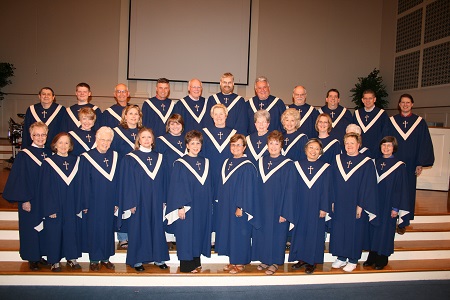 Pastors don’t need to convince believers to accept Jesus. That would be like preaching to the choir.
Pastors don’t need to convince believers to accept Jesus. That would be like preaching to the choir. 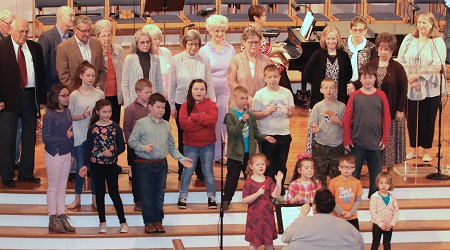 To spread a message, the messenger must go to those who:
To spread a message, the messenger must go to those who: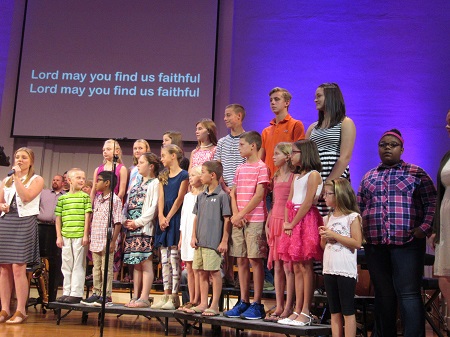 Of course, people enjoy sharing the same beliefs. Choir members sing and praise God with other believers. True worship makes them
Of course, people enjoy sharing the same beliefs. Choir members sing and praise God with other believers. True worship makes them  Chickens come home to roost.
Chickens come home to roost.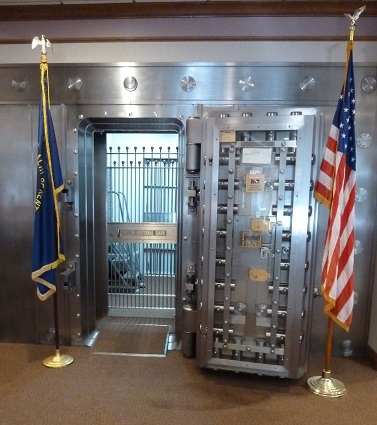 If someone pays us by check, we take it to the bank. The check promises money.
If someone pays us by check, we take it to the bank. The check promises money. When we want to check if something happened, we look in the books.
When we want to check if something happened, we look in the books. Anyone or anything pretty as a picture is very pretty.
Anyone or anything pretty as a picture is very pretty.  Joe Hill wrote about pie in the sky in his 1911 song,
Joe Hill wrote about pie in the sky in his 1911 song,  No holds barred means no rules.
No holds barred means no rules. Teetotal means total or complete.
Teetotal means total or complete. 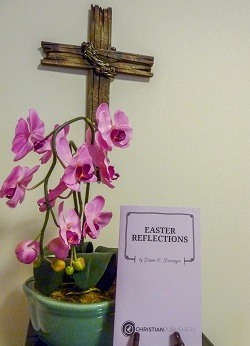 Congratulations to Harriet Michael, whose name was randomly drawn from my blog subscribers for a free copy of “Easter Reflections.”
Congratulations to Harriet Michael, whose name was randomly drawn from my blog subscribers for a free copy of “Easter Reflections.” 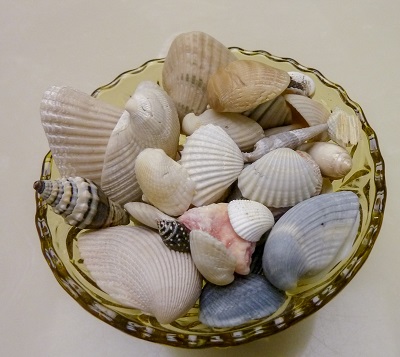 To warm the cockles of my heart, something makes me happy.
To warm the cockles of my heart, something makes me happy.